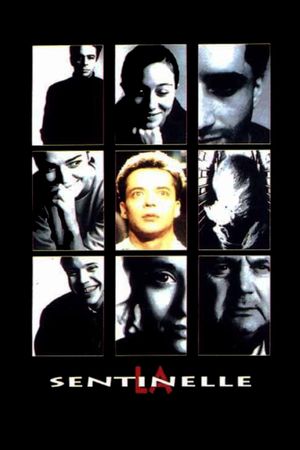Somehow hypnotising look at the life of pretty students, with a thriller intrigue (in Cold War context) that never truly gets the focus despite its eventual resolution, the film being more busy (going everywhere in typical Desplechin) with its numerous characters, especially its lonely, estranged and increasingly obsessive hero, played by best newcomer Emmanuel Salinger (La vie des morts).
Also with Marianne Denicourt, as alluring as in her previous and future collaborations with Desplechin.
Score: ?/10
Enjoyment: 4/5
Pleasantly unpleasant.
============BONUS
Dissecting Cold-War Mentality and a Shrunken Head (1992-10-5, STEPHEN HOLDEN)
Anyone who believes that Americans have a monopoly on conspiracy theories should see the French director Arnaud Desplechin's intricately constructed film, La Sentinelle. In the movie, which might be described as a medical thriller, a brain that turns out to be symbolic of cold-war mentality is meticulously dissected and analyzed on a laboratory table by a student of forensic medicine.
Without giving away too much, it should suffice to say that among other revelations about the recently ended cold war is the suggestion that it was a cloak-and-dagger game played with boyish relish by participants on both sides of the Iron Curtain. That idea is hinted at in an early scene in which a lecturer describes the meeting at which Churchill and Stalin sat down together and in a matter of minutes blithely carved up eastern Europe.
La Sentinelle follows the present day travails, both scientific and romantic, of Mathias Barillet (Emmanuel Salinger), a glum young student who moves from Germany to France to attend medical school. In the film's opening scene, Mathias, who is about to leave for Paris, pays a farewell visit to the grave of his father, who was once a border sentinel in Aachen, Germany.
Aboard the train, he and his friend Jean-Jacques (Thibault de Montalembert), an employee of the French Foreign Office, are visited by customs officials. Although Jean-Jacques passes the inspection, Mathias finds himself taken at gunpoint to the customs car where he is grilled by a sinister double-agent type named Bleicher (Jean-Louis Richard). But after a search of his luggage reveals nothing unusual, Mathias is allowed to continue.
In his Paris hotel, however, Mathias finds a strange parcel in one of his suitcases. Opening it up, he discovers the shrunken head of a middle-aged man. Deeply shaken, he decides to keep his discovery a secret, and over the following weeks he begins surreptitiously testing samples of the head in his medical school laboratory. His quest for information quickly mounts into an obsession. He discovers that the head has Russian dental work but was shrunk by a technique commonly used by Indians in Sumatra.
The director, who also co-wrote the screenplay, extends the cold-war analogies of people divided by nationality, religion and sex to Mathias's touchy interpersonal relationships. Mathias decides to share an apartment with William (Bruno Todeschini) a colleague of Jean-Jacques's who is sleeping with Jean-Jacques's girlfriend Nathalie (Valerie Dreville). William is so insistent on guarding his own space in the apartment that the door between their bedrooms almost becomes a kind of checkpoint.
Also on hand is Mathias's sister Marie (Marianne Denicourt), a singer with a small opera company run by Jean-Jacques's boss Varins (Jean-Luc Boutte). An elegant and mysterious figure, Varins has the power to decide if the company will visit Russia.
The relations among everyone in the circle, in which Mathias finds himself an outsider, are edgy. As Mathias goes about his life, his dealings with people have a quality of strained diplomatic negotiations.
Although the thriller aspect La Sentinelle doesn't quite add up, the film is still an absorbing, psychologically resonant portrait of French student life. As directed by Mr. Desplechin, the attractive young cast hardly seems to be acting. Mr. Salinger's Mathias portrayal is a wonderfully subtle depiction of a man divided by his desire to be in a group and his deeper loner's instincts. Among the film's most delightful moments are scenes of the opera company at work and play. The laboratory scenes, though graphic, don't rub the audience's faces too insistently in clinical detail.
La Sentinelle is both an epitaph for the cold war and a reflection of it. It also wonders seriously about the psychological ramifications of a united Europe.

